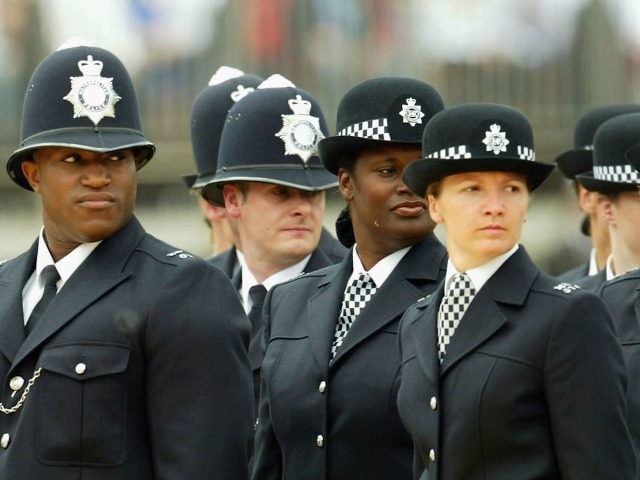All new police officers will have to attend university from next year, the College of Policing has announced.
New recruits will chose between a self-funded degree, a police-paid six-month postgraduate conversion course, or a three-year “degree apprenticeship” with a salary of between £21,000 and £23,000 a year, the College said.
It claimed the changes were required because of the changing nature of policing, raising concerns that police will be subjected to the liberal-left biases propagated through most UK higher education institutions.
Alex Marshall, chief executive of the College of Policing, said he was in discussions with 12 universities about the new system, the BBC has reported.
“Policing is more complex and difficult than it used to be and police need better training and education than they have had up until now,” he said, “If you compare it to medicine or the military [where] there is massive investment in training and development, in policing there is a tiny investment.”
He said there was a feeling that the nature of police work had changed significantly, meaning officers were just as likely to be “patrolling online” as on the street.
“Cyber-enabled crime has increased,” he said, “So has the need for officers and staff to investigate and gather intelligence online and via information technology.”
Protecting vulnerable people had also become a “high priority”, with more officer time dedicated to preventing domestic abuse, monitoring sex offenders and protecting children, he said.
The National Police Chiefs’ Council said the change would “help modernise the service”.
But Norman Brennan, a retired police officer with 31 years’ service behind him, said degrees were “at the bottom of the priority list” for police.
“The only degree a police officer needs is a degree of common sense – they’ll learn on the job,” he said. “The public don’t care about police having degrees. They want someone competent, caring and capable.”
At the moment four in ten new police officers are educated to degree or postgraduate level.
A pay review of the public sector in 2011 found that police officers were “comparatively well paid – 10 to 15 per cent higher than some other emergency workers and the armed forces.” There is feeling within government therefore that the service needs to professionalise, and that pay needs to reflect skills rather than time served.
Andy Fittes, general secretary of the Police Federation of England and Wales, said: “There is a balance to be struck around encouraging people to have a certain level of education before joining the force, and marginalising and excluding good quality candidates from all communities by limiting the pool of potential candidates if they are unable to afford it.”
Giles York the National Police Chiefs’ Council lead for workforce, said: “As crime and demand change, so must policing. Our workforce is our most valuable resource so police officers and staff need the right skills, knowledge and attributes to prevent harm and keep people safe in the 21st century.
“The changes announced today will help modernise the service and improve our ability to attract and retain really good people. It is also fair and right that police officers, as professionals, receive the recognition and accreditation they deserve, meaning the public will continue to get the high quality service they need.”

COMMENTS
Please let us know if you're having issues with commenting.